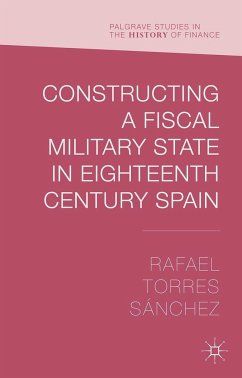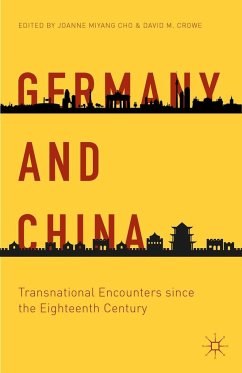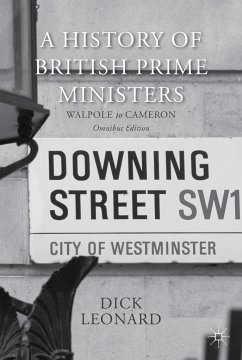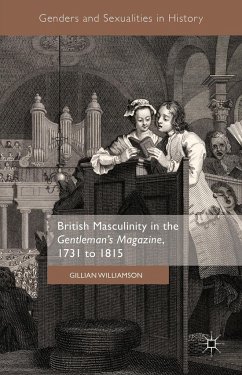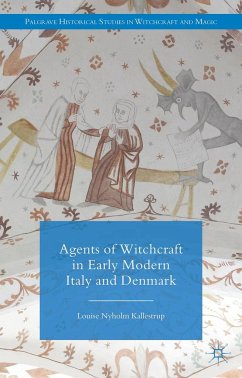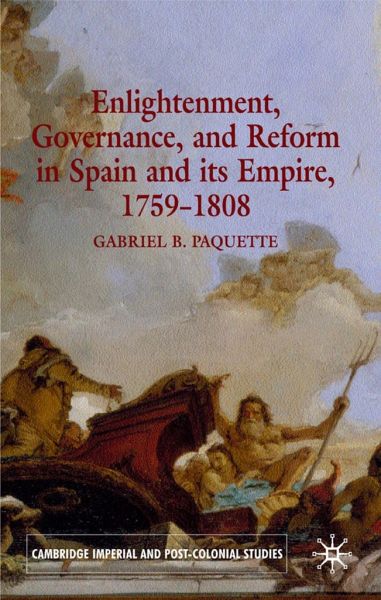
G. Paquette
Gebundenes Buch
Enlightenment, Governance, and Reform in Spain and Its Empire 1759-1808
Versandkostenfrei!
Versandfertig in 6-10 Tagen
Weitere Ausgaben:

PAYBACK Punkte
19 °P sammeln!





This book offers a new interpretation of political reform in Spain and its American empire in the second half of the Eighteenth century. It examines the intellectual foundation of commercial, administrative and colonial policy during the tumultuous reigns of Charles III and Charles IV.
GABRIEL PAQUETTE is Assistant Professor of History at The Johns Hopkins University, USA.
Produktdetails
- Cambridge Imperial and Post-Colonial Studies
- Verlag: Palgrave Macmillan / Palgrave Macmillan UK / Springer Palgrave Macmillan
- Artikelnr. des Verlages: 978-1-4039-8594-1
- 2008 edition
- Seitenzahl: 244
- Erscheinungstermin: 17. Januar 2008
- Englisch
- Abmessung: 222mm x 147mm x 21mm
- Gewicht: 408g
- ISBN-13: 9781403985941
- ISBN-10: 1403985944
- Artikelnr.: 23306374
Herstellerkennzeichnung
Libri GmbH
Europaallee 1
36244 Bad Hersfeld
gpsr@libri.de
'An eloquent and tightly written monograph ... meticulously researched and highly readable.' -Joseph Harrison, Journal of Iberian and Latin American Studies 'Concise and well-argued. The strength of this volume is its deployment of regalism as an alternative framework for understanding government policy during the eighteenth century. Enlightenment, Governance, and Reform in Spain and its Empire has the potential to open new insights into the study of the Latin American independence movements ... This book deserves an audience beyond scholars of eighteenth-century Spain and colonial Latin America; scholars of the Atlantic World, the Enlightenment, the history of political theory, and the early nineteenth century would also be stimulated by
Mehr anzeigen
this volume' - Clinton Young, Itinerario 'Paquette's account is a clearly-argued and informative account with sparkles of originality that will pave the way for future studies. A must-read for scholars and graduate students working in the area of eighteenth-century studies' - Ruth Hill, Dieciocho: Hispanic Enlightenment 'Paquette weaves a dense tapestry of ideas, actors, and actions with threads of both older and newer scholarship on European empires. More advanced students will welcome Paquette's admirable summaries of such topics as the historiography on the Bourbon era, the origins and evolution of regalism, and the institutions of governance in the eighteenth-century Spanish empire. All readers will find a compelling argument and a wealth of evidence for the vibrancy of intellectual life in politics in Bourbon Spain and its American colonies. Paquette brings to bear a wide knowledge of primary and secondary published materials on eighteenth-century Spain and Europe and their transatlantic empires.' - Evelyn Powelll Jennings, H-Net Intellectual History (H-Ideas) 'Leading intellectuals in Spain wholeheartedly embraced the new science of political economy, for trade would rescue Spain from decline. They sought critically to emulate the successful commercial models of Spain's European rivals, yet without doing away with traditional legal formulas. Wielding the discourse of medieval 'regalism,' these reformers went after all corporate privileges, not only those of the Church, and expanded the centralizing hold of the State. Equally patriotic and cosmopolitan, government officials and Creole merchants in the backwaters of the empire, however, had views of their own and did not passively accept the formulas dished out by metropolitan reformers. This is a substantive contribution to the study of the colonial and imperial dimensions of political economy in the Enlightenment.' - Jorge Cañizares-Esguerra, University of Texas at Austin, USA 'An important study that has much to say on both Spain and her empire in the latter half of the eighteenth century, and ought finally to kill the notion of the Antiguo Régimen as an archaic backwater whose only hope was reform at the hands of Napoleon Bonaparte.' - Charles Esdaile, University of Liverpool, UK 'This fine book provides a meticulously researched and carefully written examination of the intellectual foundations of the Bourbon Reforms in the Caroline Era, all within the context of the wider Atlantic World. It is a major contribution to the burgeoning field of 'Atlantic History,' which should appeal to an audience of specialists and students alike.' - Kenneth J. Andrien, The Ohio State University, USA 'Paquette's discussion of the interplay of ideas, policies, and conceptions of the state in metropolitan Spain is intelligent and even-handed ... the book makes a major contribution to the field of Atlantic history. It studies Spanish America as an integral, not parallel, part of Iberian history. In addition, it ought to help put to rest lingering views that the Spanish monarchy was hopelessly outmoded and resistant to reform.' - Timothy E. Anna, The International History Review 'Paquette's study is a welcome contribution to historical literature of the Enlightenment during the reigns of Charles III and Charles IV. It is strongest and most innovative in its examination of emulation and regalism within an international context ... All students of the Bourbon reforms will want to read this book'. - Mark Burkholder, The Americas 'Overall this is a work of remarkable erudition, which is recommended to all students of the Bourbon reforms in Spain and Spanish America ...' -John Fisher, Journal of Latin American Studies 'a carefully researched and written book ... this monograph will prove useful to scholars of the Bourbon period and those interested in the history of ideas.' -Brian Larkin, Colonial Latin American Historical Review 'complex and illuminating, ... [it] leads the reader to question conventional paradigms and eventually the methodology of the most traditional history of ideas.' - Eva Botella Ordinas, Atlantic Studies 'Paquette offers intriguing insights into the intellectual underpinnings of the reform movement. He provides a macro view of the ideas behind the reforms and places these imperial changes within the broader intellectual currents of the European and Atlantic worlds. Those interested in the reforms will find Paquette's work provocative and rewarding.' - Kendall W. Brown, American Historical Review 'With this accomplished intellectual history of late eighteenth-century Spanish governance and political economy, Gabriel Paquette offers an innovative synthesis exploring the ideological motivations of the Bourbon reform agenda.' - Hispanic American Historical Review '... Paquette has written a book that is a much needed contribution to the under-researched field of eighteenth-century Spain and her empire.' - Association for Spanish and Portuguese Historical Studies Bulletin Paquette devotes significant attention to the implementation of the Bourbon reforms in Spain before the process shifted to the New World. His explanations contribute significantly to the historiography of the epoch and underscore how in the face of complex challenges the Spanish crown struggled to revise imperial policy.' Christon I. Archer, Journal of Modern History 'This book constitutes a major addition to the literature on the intellectual history of Spanish colonialism. In these years of relentless commemorations of the bicentenaries of Hispanic American Independence, [it] provides a rigorous and strongly argued counterpoint to the wave of cultural histories on Spain's late-colonial period and the causes of Independence. There is a great wealth of detail and the scope of archival research is truly impressive. Its original approach and the new perspective offered are a real contribution to the literature, and the book will be essential reading for scholars of the political thinking behind Spanish colonialism.' - Matthew Brown, Journal of Imperial and Commonwealth History 'Thoughtful and widely researched' - Latin American Research Review 'With this book, we now have an excellent guide which elucidates much of the logic and nuances of Spanish imperial governance ... this book is perfect for a graduate seminar and provides several valuable insights for new directions and developments in historical scholarship on the Spanish empire, Enlightenment political thought, and the intellectual contours of governance in the Atlantic World.' - European History Quarterly
Schließen
Für dieses Produkt wurde noch keine Bewertung abgegeben. Wir würden uns sehr freuen, wenn du die erste Bewertung schreibst!
Eine Bewertung schreiben
Eine Bewertung schreiben
Andere Kunden interessierten sich für





